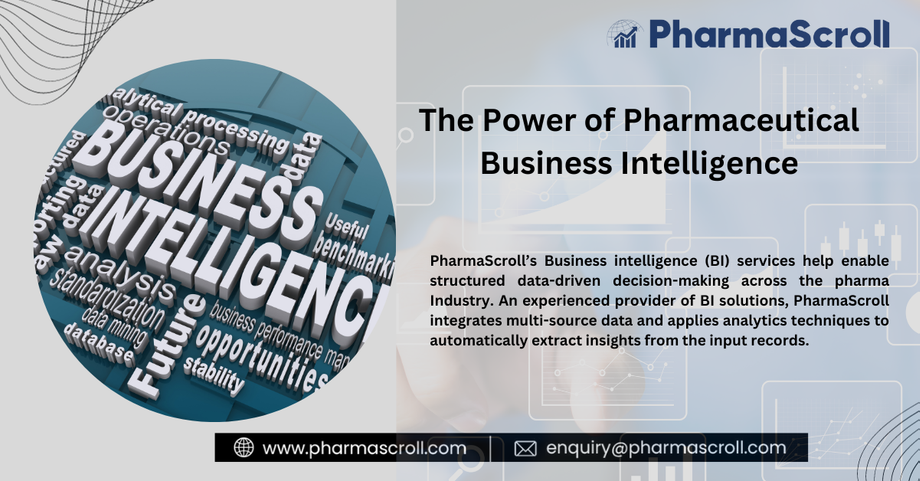Pharmaceutical companies have invested heavily in recent years to discover better drugs, more effective treatments, and make them available to patients worldwide. As the industry becomes more complex, businesses are seeking ways to get better insights and competitive advantage by tapping into the vast amounts of data available. One way they can achieve that is by utilising Pharmaceutical Business Intelligence (PBI). In this post, we will explain what PBI is, how it works, and how it can help pharmaceutical companies stay competitive.
- What is Pharmaceutical Business Intelligence?
Pharmaceutical Business Intelligence (PBI) refers to the process of collecting, analyzing, and visualizing data from various sources related to the pharmaceutical industry to gain insights into market trends, regulatory changes, competitors' activities, and patient behavior. PBI uses different tools, such as data mining, predictive analytics, and machine learning, to identify patterns and derive meaningful insights from unstructured data, including social media, patents, clinical trials, and drug sales data.
- How does Pharmaceutical Business Intelligence work?
Pharmaceutical Business Intelligence solutions gather data from various sources, including internal company databases, third-party data providers, and open sources. The data is then transformed into a usable format, and sophisticated analytical tools are applied to extract insights from the data. These insights are then visualized in dashboards and reports that are easy to interpret and share with different departments in the company.
- What are the benefits of Pharmaceutical Business Intelligence?
Pharmaceutical companies can benefit in many ways from using PBI. Firstly, they can gain competitive intelligence by analyzing data about their competitors and industry trends, which allows them to make better strategic decisions and improve their market position. Secondly, patients' behavior data can help companies create more targeted marketing campaigns and clinical trials that meet the needs of specific patient populations. Thirdly, clinical scientists can use PBI to identify promising compounds and streamline the drug discovery and development processes.
- What are the limitations of Pharmaceutical Business Intelligence?
While PBI has many benefits, there are some limitations to consider. Firstly, data privacy concerns can arise when dealing with sensitive patient data. Secondly, companies need to ensure the accuracy and completeness of the data they use for analysis. Finally, to derive meaningful insights, PBI relies on having high-quality internal and external data, which can be costly and time-consuming to obtain.
- What is the future of Pharmaceutical Business Intelligence?
PBI is an emerging field that is poised for growth in the next few years. As more data becomes available, the demand for analytics tools and solutions that can make sense of the data will increase. Additionally, with the rise of artificial intelligence and the Internet of Things (IoT), we can expect to see even more sophisticated PBI solutions that integrate and analyze data from a wide range of sources.
Conclusion:
Pharmaceutical Business Intelligence has significant benefits for the pharmaceutical industry, including gaining competitive intelligence, creating more targeted marketing campaigns, and improving drug discovery and development processes. While there are some limitations to PBI, companies can mitigate them through careful planning and use of high-quality data. As the industry continues to evolve, PBI will play a critical role in helping pharmaceutical companies stay ahead of the competition and deliver better treatments to patients worldwide.
Learn More: https://rb.gy/w0ebw
Contact Us: enquiry@pharmascroll.com

